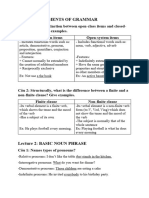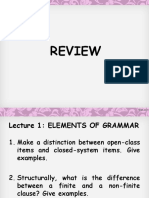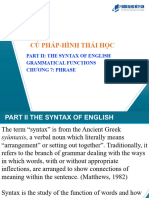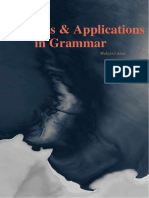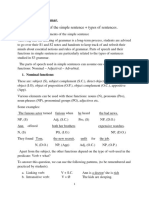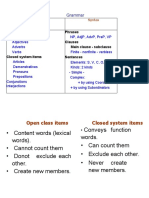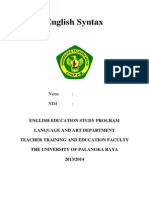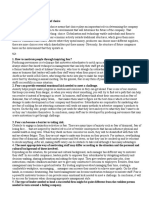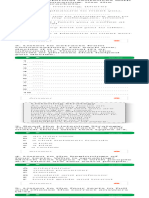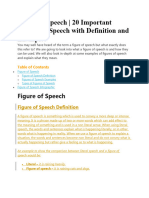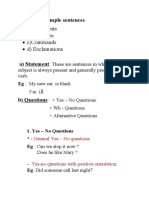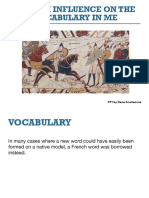0% found this document useful (0 votes)
72 views7 pagesLecture 1
1. The document summarizes key elements of grammar including parts of speech, types of clauses, noun phrases, verb phrases, and sentence structures.
2. It defines open-class and closed-class items, and provides examples. Finite clauses directly show tense and mood, while non-finite clauses do not.
3. Complex noun phrases consist of premodifiers, a head noun, and optional postmodifiers. Premodifiers are mainly closed systems like articles or open classes like adjectives. Postmodifiers include prepositional phrases.
Uploaded by
Diep NguyenCopyright
© © All Rights Reserved
We take content rights seriously. If you suspect this is your content, claim it here.
Available Formats
Download as DOCX, PDF, TXT or read online on Scribd
0% found this document useful (0 votes)
72 views7 pagesLecture 1
1. The document summarizes key elements of grammar including parts of speech, types of clauses, noun phrases, verb phrases, and sentence structures.
2. It defines open-class and closed-class items, and provides examples. Finite clauses directly show tense and mood, while non-finite clauses do not.
3. Complex noun phrases consist of premodifiers, a head noun, and optional postmodifiers. Premodifiers are mainly closed systems like articles or open classes like adjectives. Postmodifiers include prepositional phrases.
Uploaded by
Diep NguyenCopyright
© © All Rights Reserved
We take content rights seriously. If you suspect this is your content, claim it here.
Available Formats
Download as DOCX, PDF, TXT or read online on Scribd
/ 7
